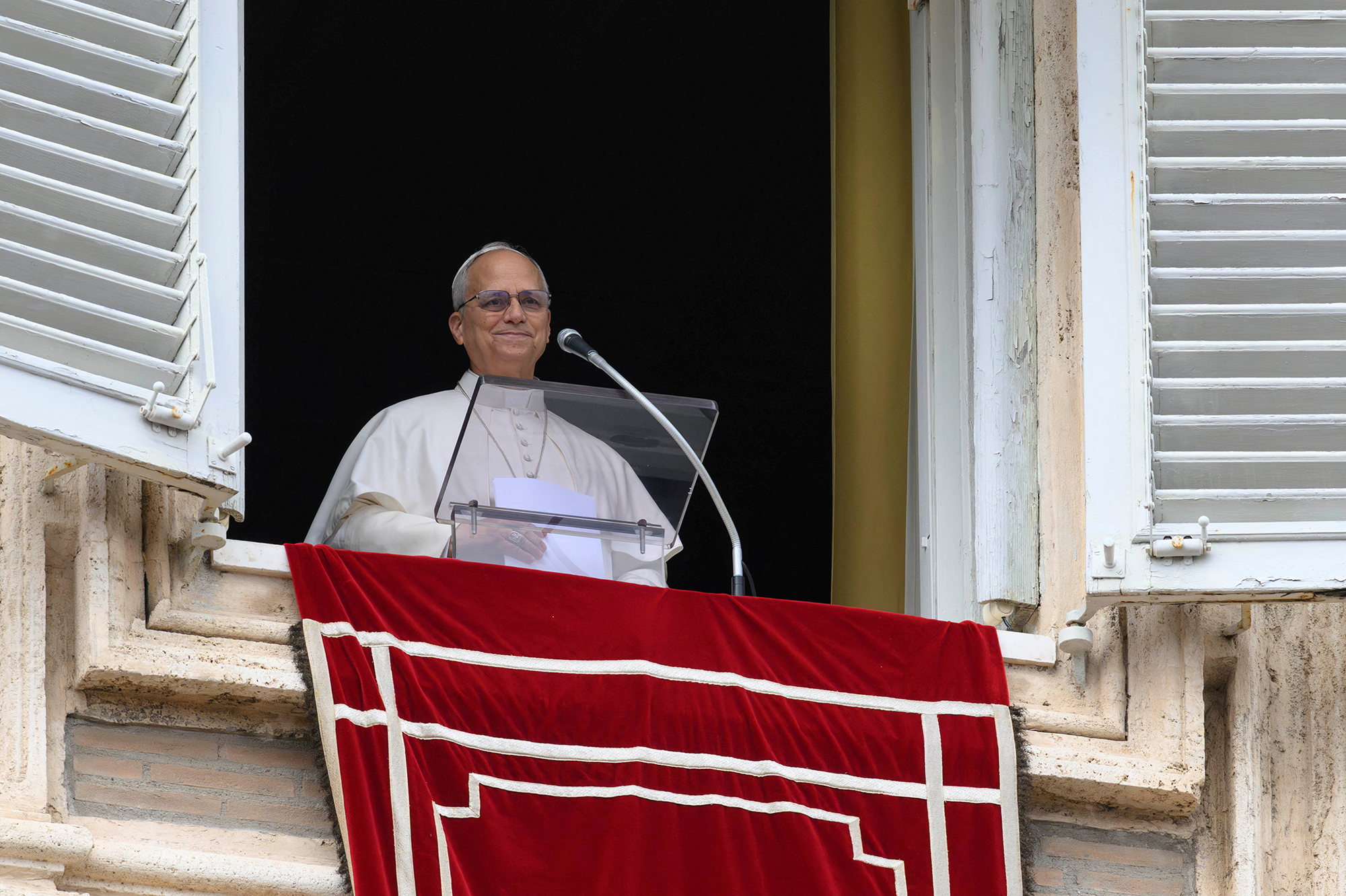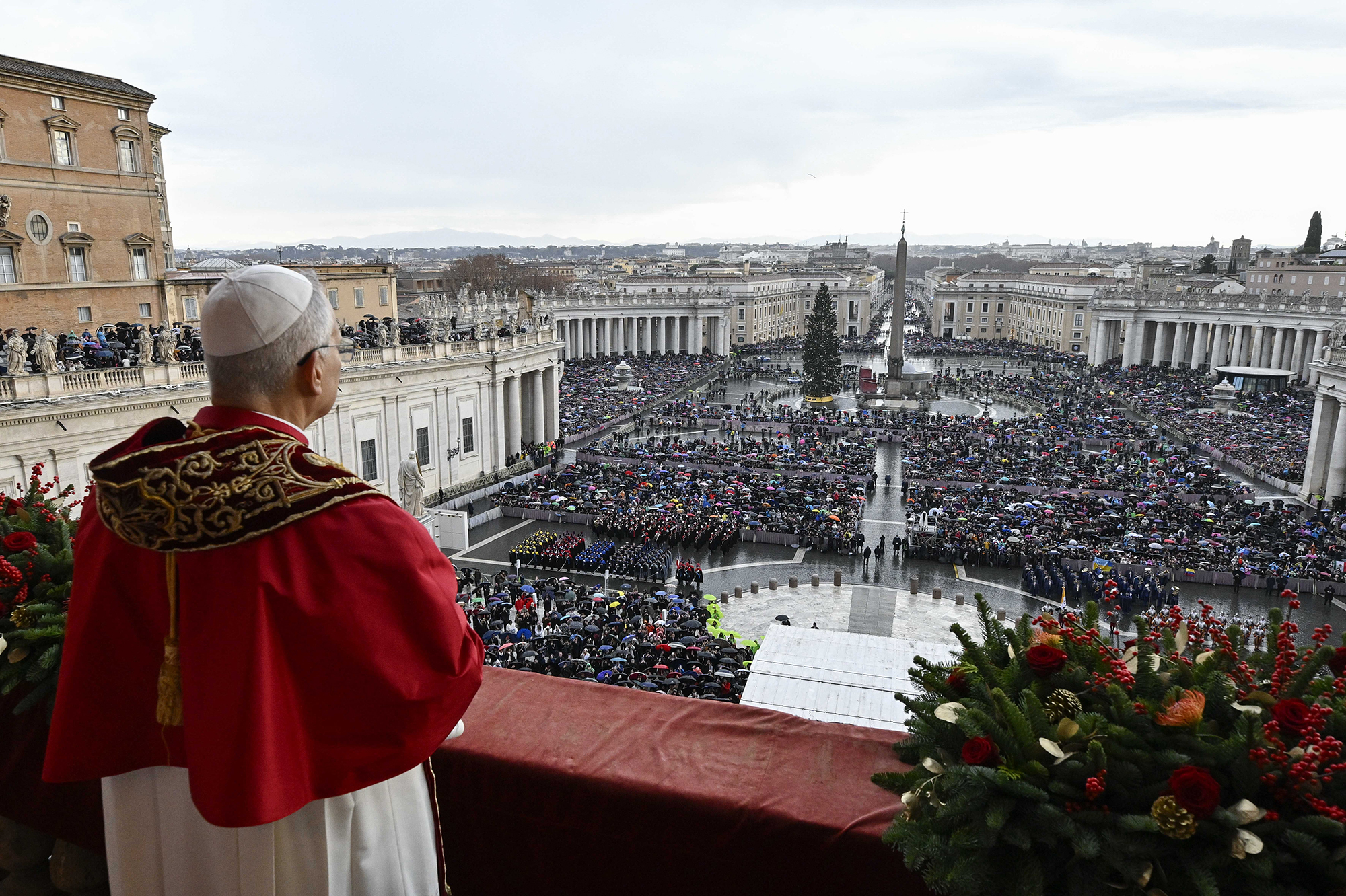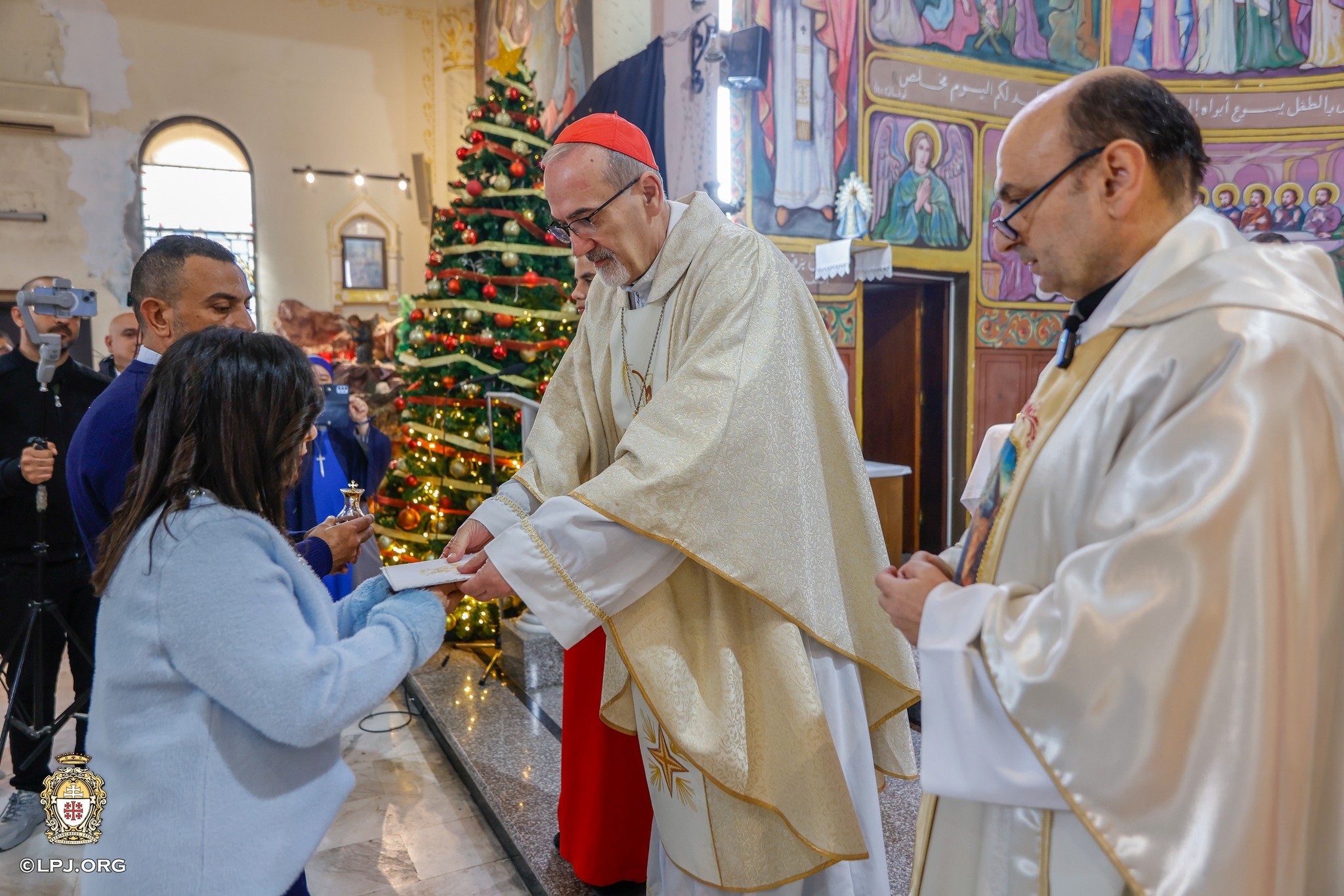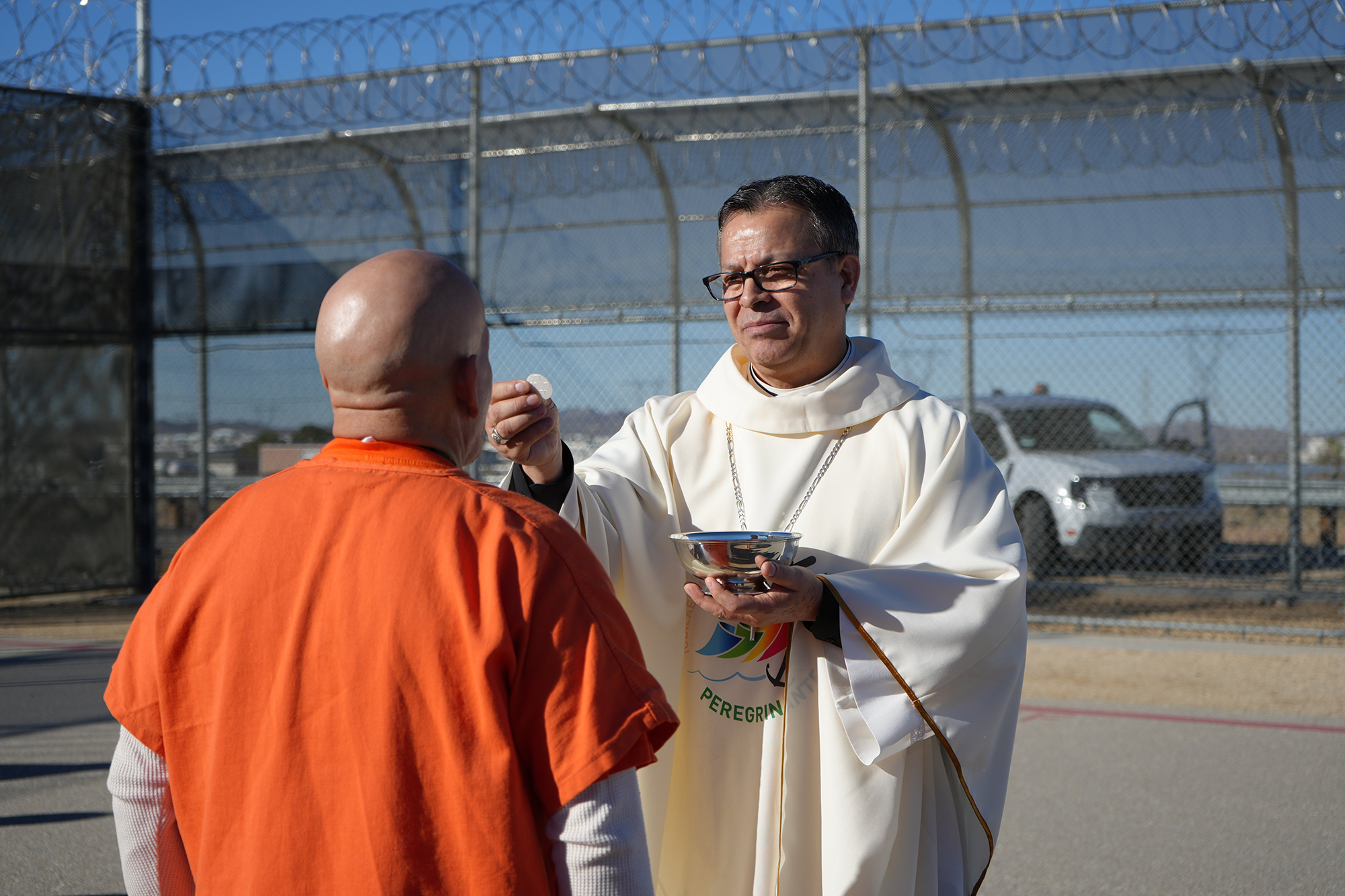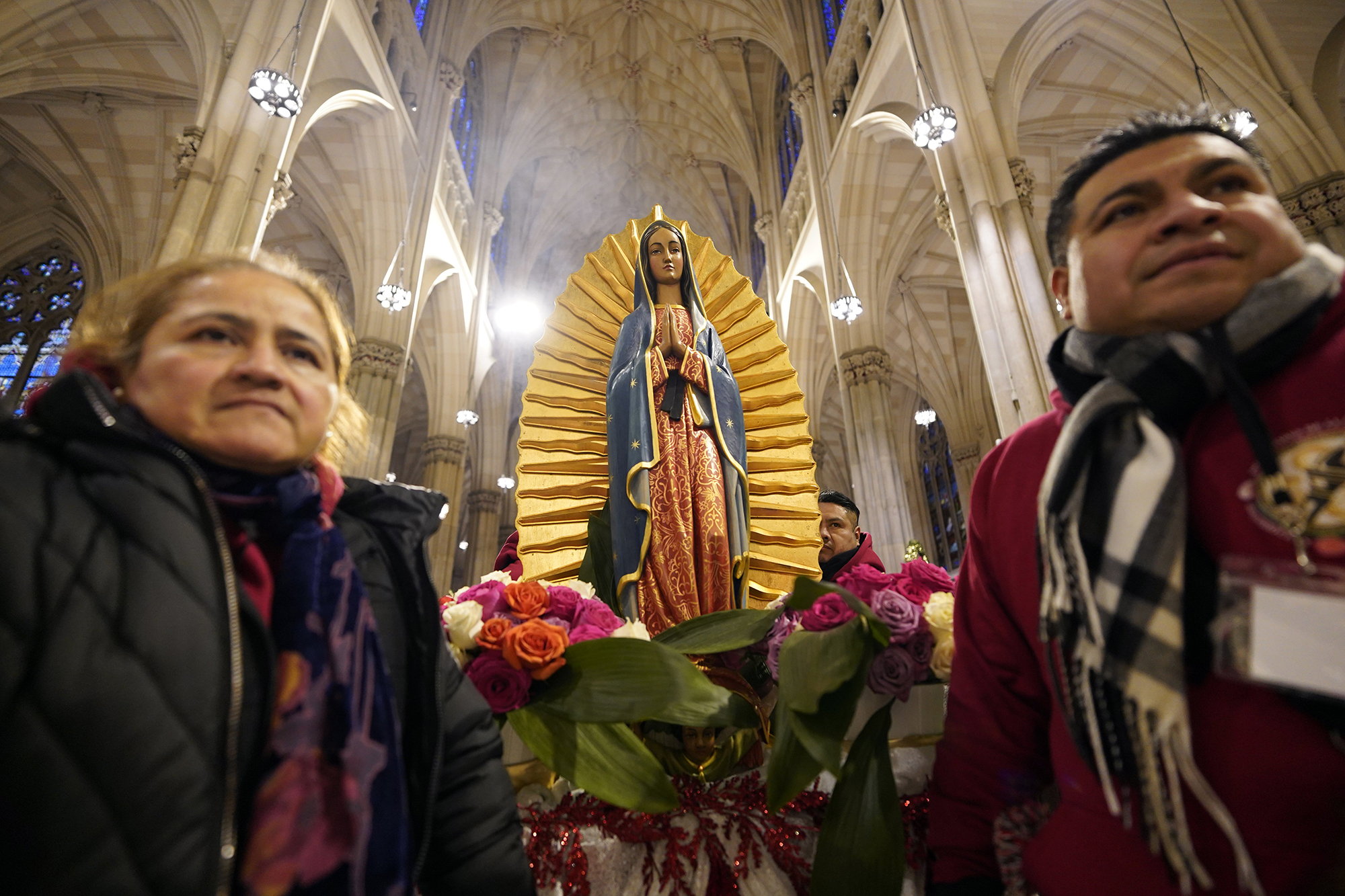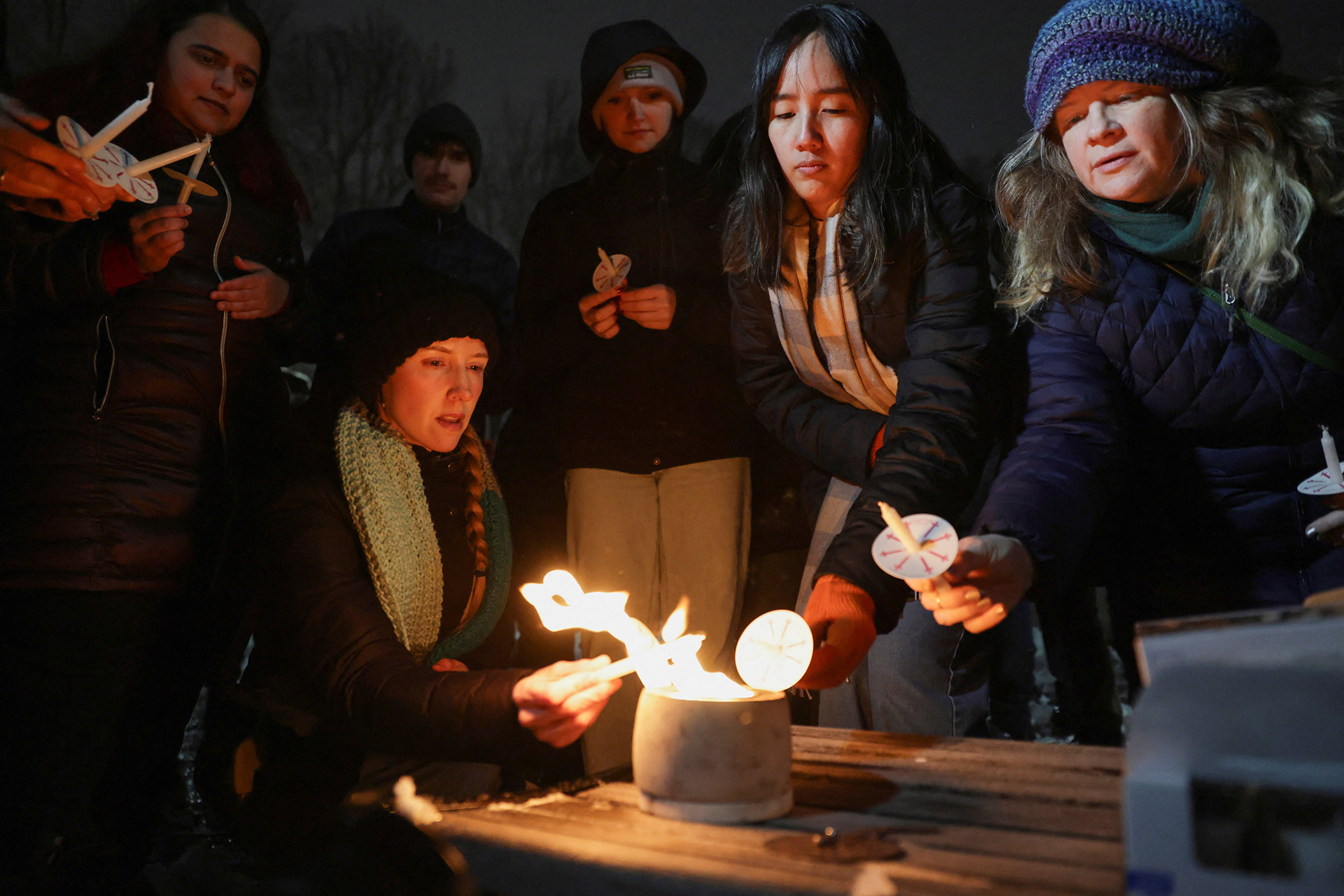Pope Leo meets with top Russian Orthodox cleric
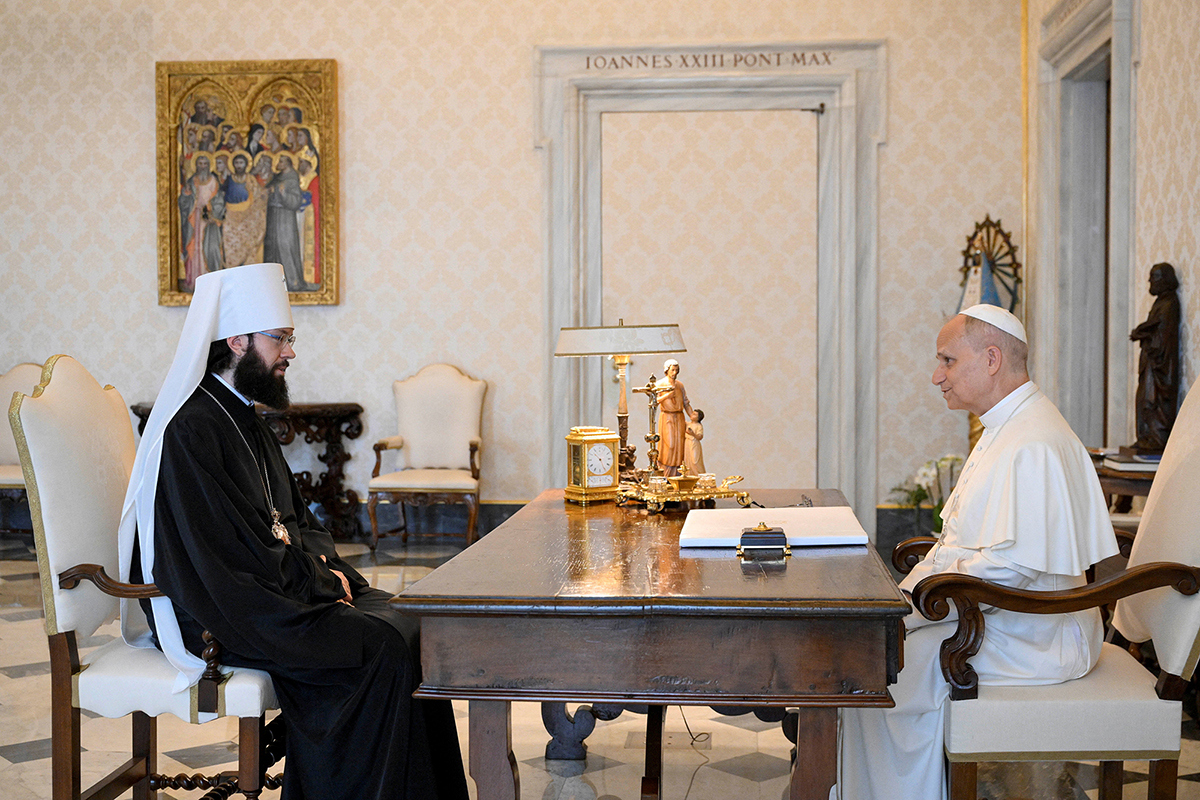
Pope Leo XIV met with a top Russian Orthodox cleric, the first such visit from Moscow since the papal election, and one that comes amid strained relations with Rome due to Russia’s ongoing war in Ukraine.
The pope received Metropolitan Anthony of Volokolamsk, chair of the Moscow Patriarchate’s external relations department — who also attended Pope Francis’ funeral — in a July 26 morning audience.
Although the Vatican press office did not provide additional comment, the Russian Orthodox Church said in a statement afterward that Metropolitan Anthony “conveyed to the pontiff greetings on behalf of His Holiness Kirill, Patriarch of Moscow and All Rus’, and congratulations on his election as Primate of the Roman Catholic Church.”
In turn, said the ROC, the pope “expressed gratitude” to Patriarch Kirill and “noted the importance of developing relations with the Russian Orthodox Church.”
Those relations, fraught throughout the centuries, have been further challenged by Russia’s full-scale invasion of Ukraine, which continues attacks launched in 2014 and which has been declared a genocide in two joint reports from the New Lines Institute and the Raoul Wallenberg Center for Human Rights.
According to the ROC statement on Metropolitan Anthony’s meeting with Pope Leo, “numerous issues were raised concerning the state of the Orthodox-Catholic dialogue, as well as the conflicts occurring in the world, including in Ukraine and the Middle East.”
Pope Leo, speaking by phone June 4 with Russian President Vladimir Putin, reiterated his earlier offer to host peace talks at the Vatican, which Russian Foreign Minister Sergei Lavrov had rejected as “a bit vulgar.”
The ROC statement added that “in particular, Metropolitan Anthony told Pope Leo XIV about the persecution to which the Ukrainian Orthodox Church is subjected today,” referencing a law widely endorsed by Ukraine’s religious leaders, legislators and general population to ban the Ukrainian Orthodox Church-Moscow Patriarchate in Ukraine due to grave security concerns.
Christian Orthodox believers in Ukraine span a number of churches. Lilia Kovalyk-Vasyuta, chief editor of Religious Information Service of Ukraine, previously clarified to OSV News that such churches include the Ukrainian Orthodox Church-Moscow Patriarchate, the Ukrainian Orthodox Church-Kyiv Patriarchate and the Orthodox Church of Ukraine (formally recognized as independent in 2019 by Ecumenical Patriarch Bartholomew I of Constantinople), as well as the Ukrainian Autocephalous Orthodox Church, the Autonomous Ukrainian Orthodox Church and the Ukrainian True Orthodox Church.
Catherine Wanner, professor of history, anthropology and religious studies at Pennsylvania State University and a specialist on religion in Soviet and post-Soviet Ukraine, testified before the U.S. Helsinki Commission in July 2024 that religious diversity “clashes with the imposition of the Russian world ideology that comes with Russian rule.”
Such an ideology — which holds that Russia is a superior civilization entitled to expand at will, since it claims to safeguard conservative values and Orthodox Christianity — “justifies the repression of religious minorities and privileges Russian Orthodoxy as a state-protected guardian of these traditional values of public morality and social and political order,” said Wanner.
A number of religious communities — including Ukrainian Greek Catholic, Orthodox, Protestant and Muslim — have faced severe persecution in occupied areas of Ukraine.
Subscribe to Read All St. Louis Review Stories
All readers receive 5 stories to read free per month. After that, readers will need to be logged in.
If you are currently receive the St. Louis Review at your home or office, please send your name and address (and subscriber id if you know it) to subscriptions@stlouisreview.com to get your login information.
If you are not currently a subscriber to the St. Louis Review, please contact subscriptions@stlouisreview.com for information on how to subscribe.

